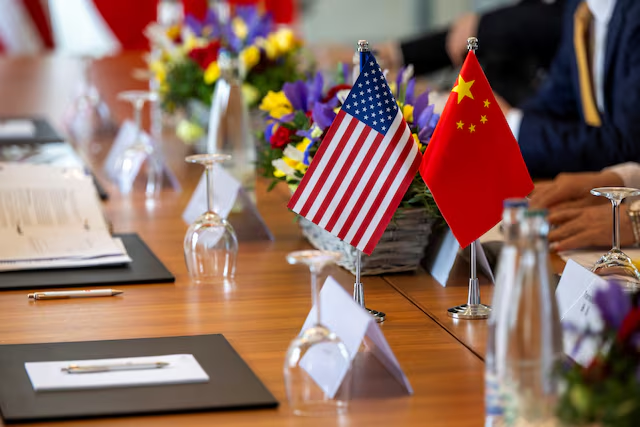seniorspectrumnewspaper – On Tuesday, both the US and China started charging new port fees on each other’s ships, escalating the trade dispute between the world’s two largest economies. The move marked another step in a series of retaliatory actions, with both sides ramping up pressure on each other.
Read More : OpenAI Partners with Broadcom to Create Custom AI Chips
China’s new fees primarily target US-owned vessels, including those operated, built, or flagged by the United States. The Chinese government claims that these levies are necessary to protect its shipping industry from “discriminatory” practices. However, ships built in China are exempt from these new fees. The move is seen as a direct response to similar port fees the US imposed on Chinese ships. Washington justifies its tariffs by saying they are designed to support American shipping companies and ensure fair trade practices.
These actions are part of a broader escalation in the US-China trade conflict. Last week, China also announced tighter controls on its rare earth exports, a critical resource for various industries, including technology and defense. In response, US President Donald Trump threatened to impose an additional 100% tariff on Chinese goods.
This growing friction continued on Tuesday, with new US tariffs on imported timber, kitchen cabinets, and upholstered furniture from China. These products add to the growing list of Chinese goods subject to higher duties.
Despite the escalating tension, US Treasury Secretary Scott Bessent confirmed that President Trump and Chinese President Xi Jinping will still meet in South Korea later in October. The meeting aims to ease the trade conflict and de-escalate the ongoing disputes. “The 100% tariff does not have to happen… we’re working on keeping communication open,” Bessent stated.
China, however, made it clear that it would stand firm if the US continues to take an aggressive stance. A Chinese commerce ministry spokesperson stated, “If there’s a fight, we’ll fight to the end; if there’s a talk, the door is open.” This suggests that while China is open to dialogue, it will not back down from its trade position.
Financial Impact and Future Outlook
The new port fees on US-linked ships could add significant costs to global shipping. According to Chinese state media, US-linked ships docking at Chinese ports will now incur a fee of 400 yuan (approximately $56) per net ton. These fees are expected to rise annually, reaching up to 1,120 yuan per ton by 2028. As a result, freight analysts predict that some of the largest vessels carrying dry bulk cargo, such as coal, could face port fees exceeding $10 million by 2028.
For the shipping industry, these additional costs could be substantial. Freight analyst Claire Chong of Thurlestone Shipping estimates that ships carrying raw materials could see fees of up to $3 million starting today. The gradual increase in fees will likely continue to impact shipping companies and freight operators in the coming years.
The exemption for Chinese-built vessels, which make up a significant portion of the global dry bulk fleet. May offer some relief for the industry. However, the overall financial burden on US shipping operations will likely remain high. The port fees, when combined with other tariffs and sanctions. May lead to rising costs for American companies operating in China.
Read More : ChatGPT No Longer Required to Retain All User Data
On top of these trade measures, China recently added five US subsidiaries of South Korean shipbuilder Hanwha Ocean to its sanction list, further exacerbating tensions. This comes after both countries had previously agreed to a truce on tariffs earlier this year. The agreement in May had promised to eliminate triple-digit tariffs on each other’s goods, but now. Both nations appear to be moving back into a more hostile phase of the trade war.
With tariffs on goods remaining high, and the new port fees set to impact shipping costs. The trade war between the US and China is far from over. The next steps will likely hinge on the upcoming meeting between the two leaders. But the financial implications for global trade remain a major concern.


